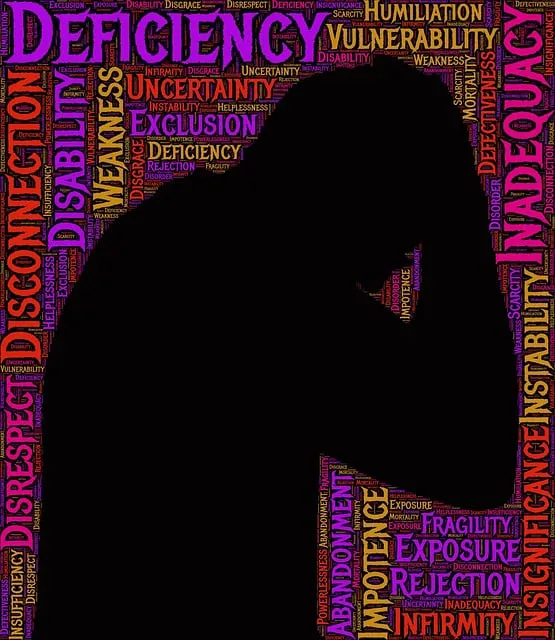Denver Kaiser Permanente revolutionizes mental health care with a data-driven approach combining Risk Factor Analysis (RFA) and resilience-building exercises. They proactively identify at-risk patients, offer tailored support, emphasize cultural sensitivity, and integrate emotional intelligence for improved patient outcomes and provider well-being. Through Resiliency Training programs and the Resilient Factors Model (RFM), they foster a supportive network that enhances coping strategies, conflict resolution, and overall mental health excellence.
In today’s demanding healthcare landscape, resilience is a game-changer for patient well-being. This article explores how Denver Kaiser Permanente has pioneered an innovative approach by integrating Resiliency Factor (RFM) analysis and exercises into their mental health strategy. We delve into the science behind building mental fortitude, examining its impact on patient recovery. Through case studies and expert insights, we uncover effective strategies for healthcare professionals to foster resilience in clinical practice, mirroring Denver Kaiser Permanente’s successful model in enhancing patient outcomes.
- RFM Analysis: Denver Kaiser Permanente's Mental Health Approach
- Understanding Resilience: Building Mental Fortitude in Healthcare
- Exercises for Growth: Resiliency Training at Kaiser Permanente
- The Impact of RFM on Patient Well-being and Recovery
- Implementing Effective Strategies: Resilience in Clinical Practice
RFM Analysis: Denver Kaiser Permanente's Mental Health Approach

Denver Kaiser Permanente has pioneered an innovative approach to mental health care that integrates robust Risk Factor Analysis (RFA) with resilience-building exercises. Their method, grounded in a deep understanding of individual and community needs, prioritizes holistic patient care. By employing RFA tools, such as RFM analysis, healthcare professionals can identify patients at heightened risk of mental health crises, enabling timely interventions. This proactive strategy not only enhances patient outcomes but also reflects the organization’s commitment to cultural sensitivity in mental healthcare practice.
Integrating this data-driven approach with tailored resilience exercises has proven effective in fostering coping mechanisms and trauma support services within their community. Denver Kaiser Permanente’s model serves as a beacon, demonstrating that addressing risk assessment for mental health professionals while emphasizing cultural sensitivity can lead to more robust and accessible mental healthcare solutions.
Understanding Resilience: Building Mental Fortitude in Healthcare

Resilience is a cornerstone of mental well-being, especially within the demanding landscape of healthcare. At Denver Kaiser Permanente, we recognize that building mental fortitude is crucial for both patients and healthcare professionals alike. Understanding resilience involves cultivating the ability to adapt and thrive in the face of stress, adversity, and significant life changes. This process empowers individuals to navigate challenging situations with greater equanimity and bounce back from setbacks more effectively.
In the context of cultural sensitivity in mental healthcare practice, resilience-building exercises are tailored to respect diverse backgrounds and experiences. Encouraging self-care routine development for better mental health is an integral part of this process. Practices like mindfulness meditation have been shown to enhance resilience by promoting present-moment awareness, reducing stress, and improving emotional regulation. By integrating these strategies into healthcare services, Denver Kaiser Permanente aims to foster a supportive environment that nurtures resilience, ultimately contributing to improved patient outcomes and enhanced quality of life.
Exercises for Growth: Resiliency Training at Kaiser Permanente

At Denver Kaiser Permanente, mental health professionals are benefiting from innovative Resiliency Training programs designed to build resilience among patients and staff alike. These exercises focus on equipping individuals with effective coping strategies to navigate life’s challenges, fostering a culture of emotional well-being within the healthcare provider community. Through interactive workshops and group discussions, participants learn valuable skills in conflict resolution techniques and risk assessment for mental health professionals, enhancing their ability to support others.
The program emphasizes cultural competency training, ensuring that staff are prepared to address diverse needs within a multicultural environment. By integrating these resilience-building exercises into the healthcare setting, Kaiser Permanente Denver is not only promoting individual growth but also creating a supportive network that positively impacts patient outcomes and overall satisfaction.
The Impact of RFM on Patient Well-being and Recovery

At Denver Kaiser Permanente, recognizing the intricate link between resilience and patient well-being, healthcare professionals are increasingly integrating Resilient Factors Model (RFM) into their approach to mental health care. This model focuses on building emotional intelligence and effective mood management skills, thereby enhancing not only the provider’s own resilience but also their ability to support patients’ journeys towards recovery. By adopting RFM, Denver Kaiser Permanente is fostering a culture of burnout prevention strategies for healthcare providers, ensuring they can offer compassionate and sustained care.
Through targeted exercises designed to strengthen emotional resilience, RFM empowers mental health professionals to navigate challenging situations with greater ease. This, in turn, creates a more supportive environment for patients, accelerating their recovery process. By prioritizing emotional intelligence and mood management as core components of patient care, Denver Kaiser Permanente is revolutionizing the traditional healthcare model, ultimately leading to improved outcomes for both providers and their patients.
Implementing Effective Strategies: Resilience in Clinical Practice

At Denver Kaiser Permanente mental health services, we understand that building resilience is a key component to enhancing well-being and mitigating challenges. Implementing effective strategies tailored to individual needs is paramount in clinical practice. Our approach focuses on empowering clients with coping mechanisms and fostering an environment conducive to resilience. By integrating communication strategies that encourage open dialogue, professionals can facilitate a safe space for individuals to express their experiences and develop adaptive responses.
This involves a comprehensive risk assessment to identify potential triggers or vulnerabilities. Through this process, mental health professionals in Denver Kaiser Permanente are equipped with the tools to design personalized interventions. These may include mindfulness exercises, cognitive reframing techniques, and stress management strategies. By regularly reviewing progress and adjusting plans as needed, we ensure our clients build lasting resilience, enabling them to navigate life’s challenges with greater ease.
Resilience, cultivated through exercises like those implemented by Denver Kaiser Permanente, is a powerful tool for enhancing patient well-being. By integrating RFM (Recency, Frequency, Monetary value) analysis and specific resilience training into mental health approaches, healthcare providers can significantly improve outcomes. This strategy not only benefits individual patients but also contributes to a more robust and adaptable healthcare system overall, reflecting the innovative mental health practices at Kaiser Permanente.






